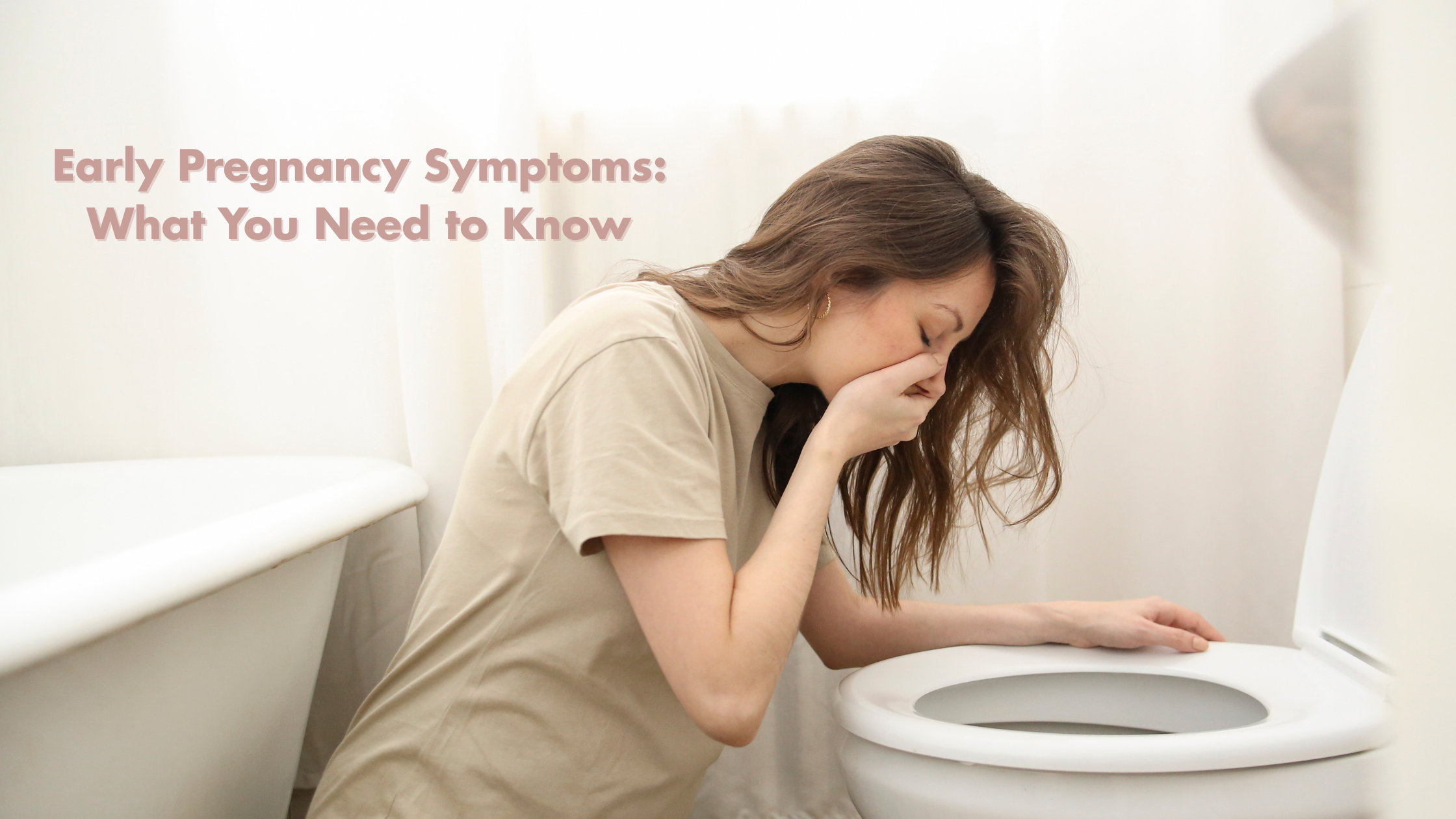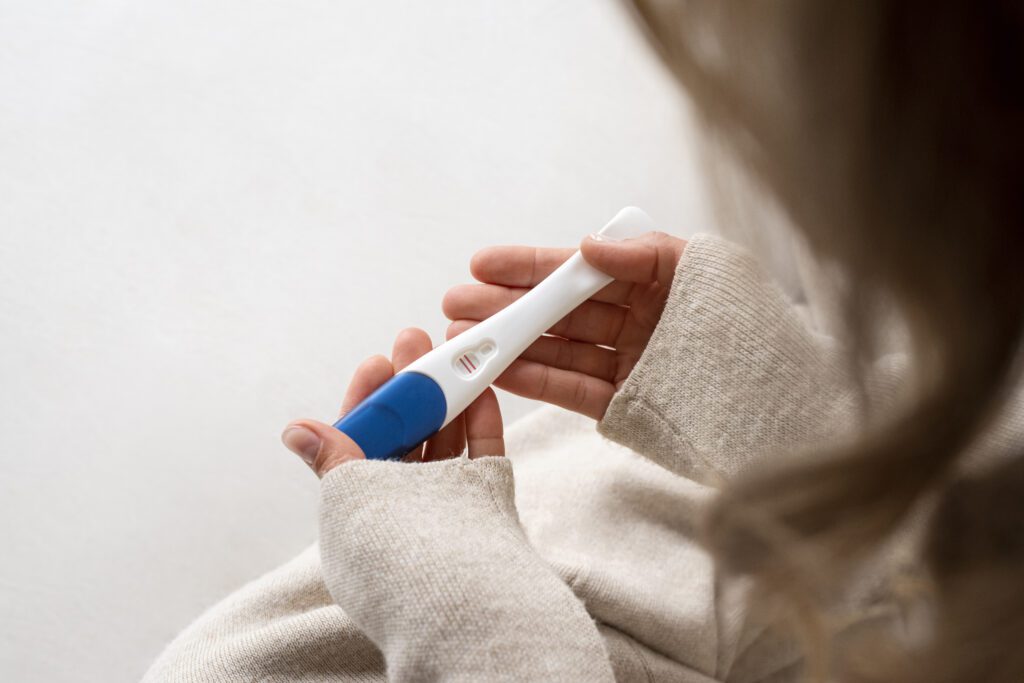Early Pregnancy Symptoms: What You Need to Know

Finding yourself wondering, “Am I pregnant?” can stir up a mix of emotions—excitement, anxiety, curiosity, or all of the above. The early signs of pregnancy can sometimes feel confusing because they overlap with common premenstrual symptoms. That’s why knowing what to look for (and what steps to take) can help bring clarity and peace of mind.
Am I Pregnant?
Early pregnancy symptoms can look different for every woman, and some may not notice any changes right away. Still, there are a few common early indicators to pay attention to:
- Missed period – Often the first noticeable sign.
- Breast tenderness or swelling – Caused by rising hormone levels.
- Fatigue – Your body is already working harder to support new life.
- Nausea or “morning sickness” – This can happen at any time of day and usually begins a few weeks after conception.
- Frequent urination – Hormonal changes increase blood flow to your kidneys.
- Mood swings – Shifting hormones can impact emotions.

It’s important to remember that some women experience all of these symptoms, while others notice very few. That’s why symptoms alone can’t confirm pregnancy.
Period vs. Pregnancy: How Can You Tell?
Many early pregnancy symptoms overlap with signs of an upcoming period. Here’s a quick comparison to help you sort through the confusion:
- Cramps: Both menstrual cycles and early pregnancy can cause cramping, but pregnancy cramps are often milder.
- Spotting: Light spotting before your period could actually be implantation bleeding, which occurs when a fertilized egg attaches to the uterine lining.
- Breast changes: PMS can cause soreness, but pregnancy-related breast tenderness usually feels more intense and lingers longer.
- Fatigue: While PMS can make you feel sluggish, early pregnancy fatigue tends to be more persistent and overwhelming.
- Timing: If your period is late and you’re experiencing these symptoms, pregnancy becomes a stronger possibility.

If you’re unsure, the most reliable next step is to take a home pregnancy test.
Positive Test—Now What?
Seeing those two lines on a pregnancy test can be life-changing. Once you’ve confirmed pregnancy, here are a few steps to take right away:
- Confirm with a healthcare provider – Home tests are accurate, but a medical professional can confirm with a blood test or ultrasound.
- Begin prenatal care – Early care is crucial for both you and your baby’s health. Your provider may recommend prenatal vitamins with folic acid if you aren’t already taking them.
- Adjust lifestyle habits – Reducing caffeine, avoiding alcohol and tobacco, and focusing on balanced nutrition all support a healthy pregnancy.
- Find support – Whether you’re overjoyed, nervous, or somewhere in between, surrounding yourself with supportive people and resources makes a big difference.

For Every Woman is Here For You
Pregnancy is a deeply personal journey, and no two experiences look exactly alike. If you think you might be pregnant, listening to your body, paying attention to timing, and taking a test can provide clarity. And once you know for sure, reaching out for medical guidance and emotional support will help you take the next steps with confidence.
At For Every Woman, we’re here to walk with you through every season—whether you’re navigating uncertainty, celebrating new beginnings, or simply seeking information. You’re not alone.
Read next: Can I Get Pregnant from Pre-Ejaculation? And Other Common Questions

